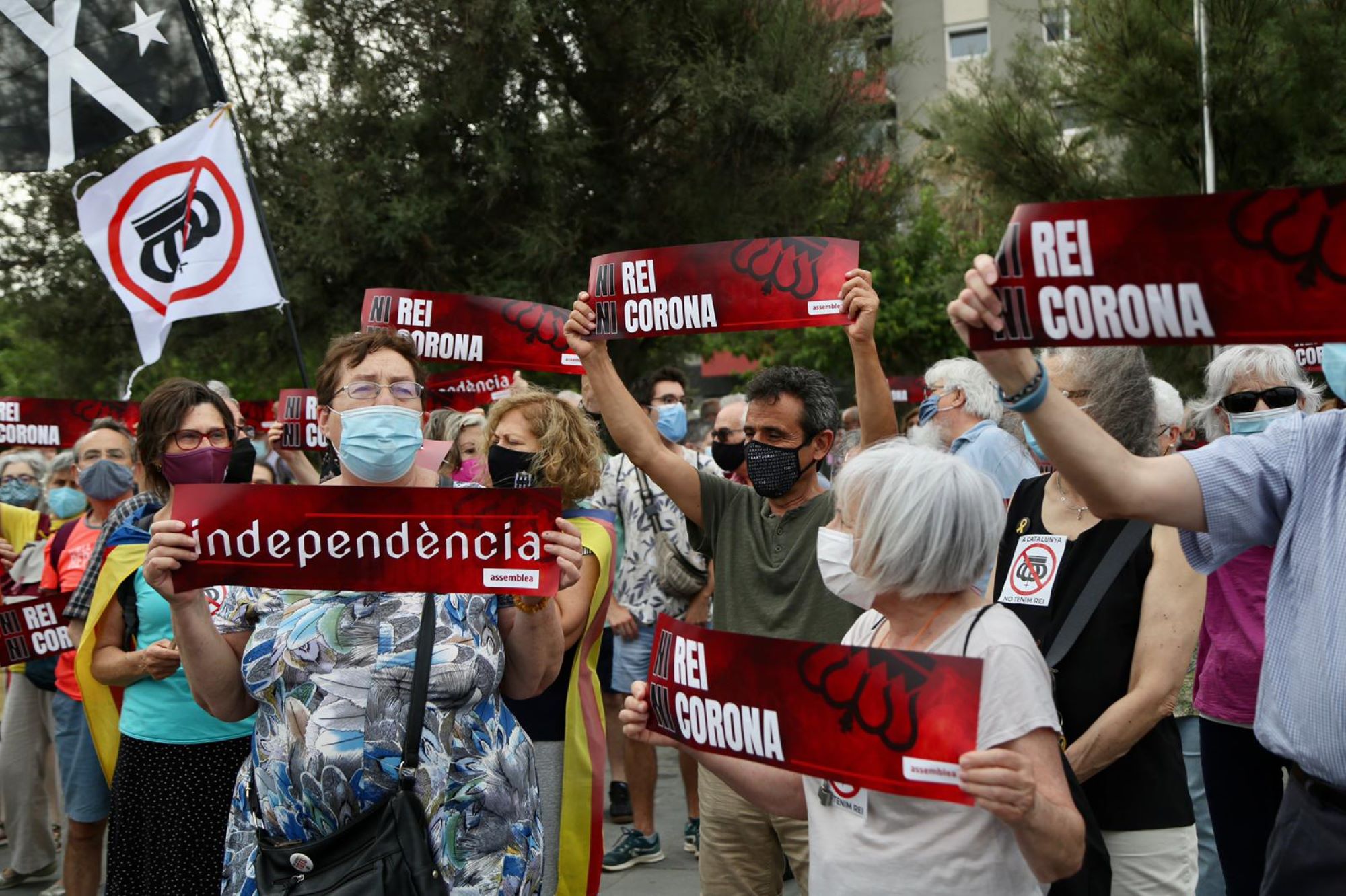A date that has become part of history. On April 14th, 1931, Francesc Macià proclaimed the Catalan republic, a few hours before the Second Spanish Republic was proclaimed in Madrid. That is why every April 14th, the Day of the Republic is celebrated in Catalonia and in Spain. So, this Thursday is once again the time to bring the issue into the present and ask the question anew: what do Catalans prefer, a monarchy or a republic? The response will probably not be a surprise to many, but a vast majority of the Catalan public support the second option. According to the latest poll from the Centre for Opinion Studies (CEO), the Catalan public research agency, three out of four people in Catalonia opt for the republic as their preferred "form of government". Thus, more than just a majority, republican support in Catalonia could be considered, as is often claimed, a consensus view.
"Monarchy or republic? Most Catalans opt for the republic," the centre noted in a tweet this Thursday. Specifically, the post shared a detail from the survey published just a week ago. A poll that asked, "Which form of government do you prefer, monarchy or republic?" 74% of respondents said they preferred the republic, while only 12% chose a monarchy. Two percent chose "another" form of state organization, 10% said they didn't know, and 2% gave no answer.

The image published by the CEO also shows the breakdown by sex, age and party preference. 76% of men prefer a republic to a monarchy (supported by 13%), while 8% don't know or didn't answer. The percentage is lower among women, 72% of whom opt for a republic and 11% for monarchy. The number of women who don't know or gave no response increases to 16%. By age, the age group where the republic has most support is 25 to 34 (80%). The highest level of support for a monarchy (18%) is among those over 65, which is also the group with the highest percentage of "don't know/no response" (17%). In the 18-24 age group, 76% support the republic and 11% support a monarchy. In the 25 to 34 age group, only 7% choose a monarchy. Among people aged 35 to 49 and 50 to 64, 78% prefer a republic and 10% a monarchy. Finally, 63% of the over-65s choose a republic.
As one might logically expect, support for a republic in Catalonia is overwhelming among supporters of the pro-independence parties: the percentage is 97% in both ERC and Junts, while in the CUP it is 100%. The figure is also 97% in the Comuns. While the remaining percentages are mainly from the "don't know/no response" options, 2% of Junts supporters and 1% of the Comuns opt for a monarchy. The republican option is also the majority choice (68%) in the PSC, but the preference for the monarchy increases to 19%. The preference for a monarchy triumphs in Vox (65%), Ciudadanos (56%) and the PP (55%). In these parties of the Spanish right, only 30% of Vox voters, 31% from Cs and 33% of PP supporters choose the republic as a form of state. Given that the same CEO poll predicted that these three parties together would obtain around 20% of votes in a Catalan election, there is a clear correlation in Catalans between those who support a monarchy and those who vote for the Spanish right.
Three great Catalan "points of consensus"
The results of the poll once again confirm, at ideological level, the distancing which has been observed at a practical level between the Catalan public and the Spanish monarchy, a break which was consummated for many Catalans by Felipe VI's speech against the Catalan independence process on October 3rd, 2017. Former Catalan president Quim Torra often spoke of the existence of three "points of consensus" in Catalan society, all supported by an overwhelming majority of Catalans: the first, as he said, is a disapproval of the institution of the Spanish monarchy, the second is a belief that "policies of repression cannot be applied to democratic politicians," and the third consensus is on "the value of the right to self-determination."

